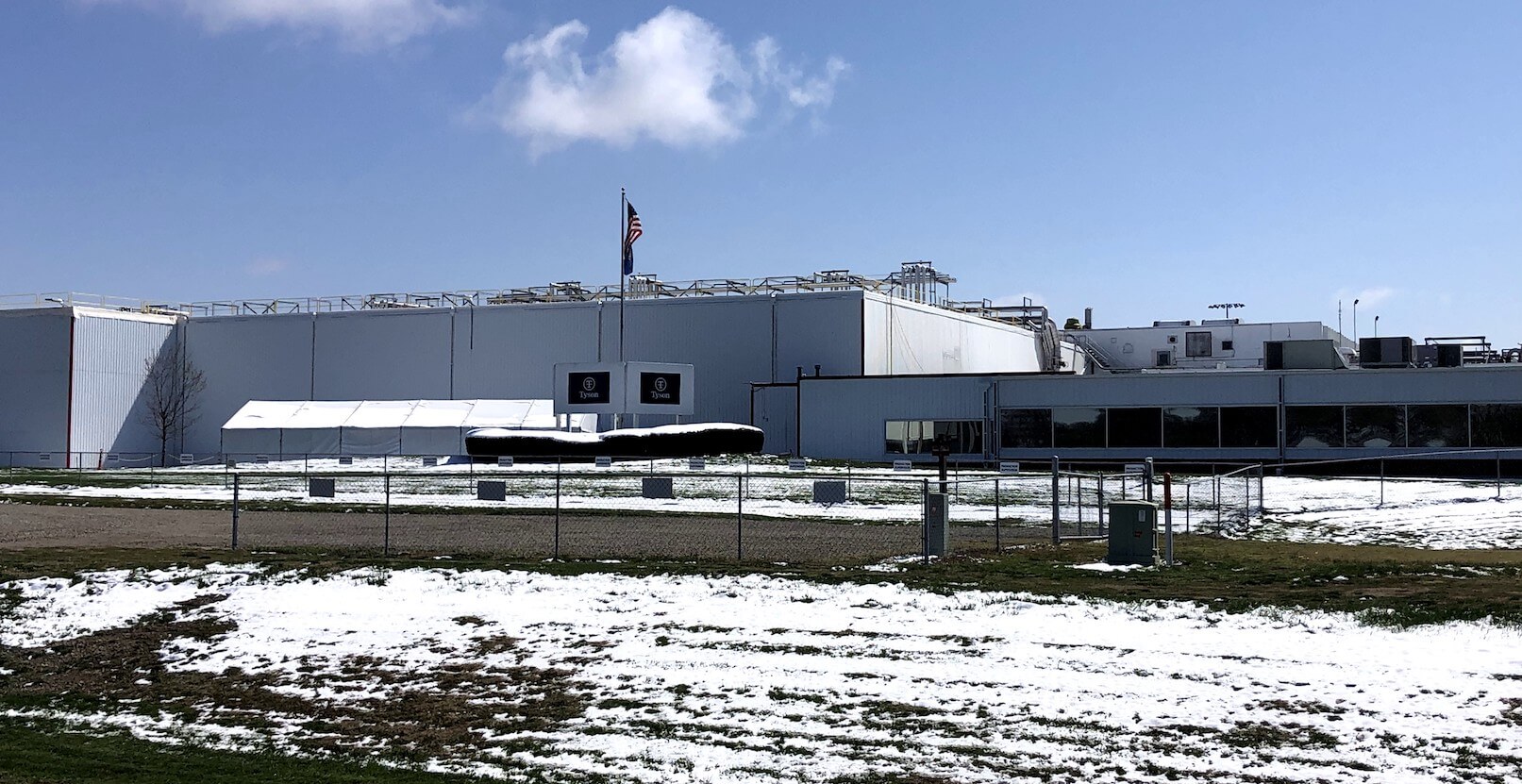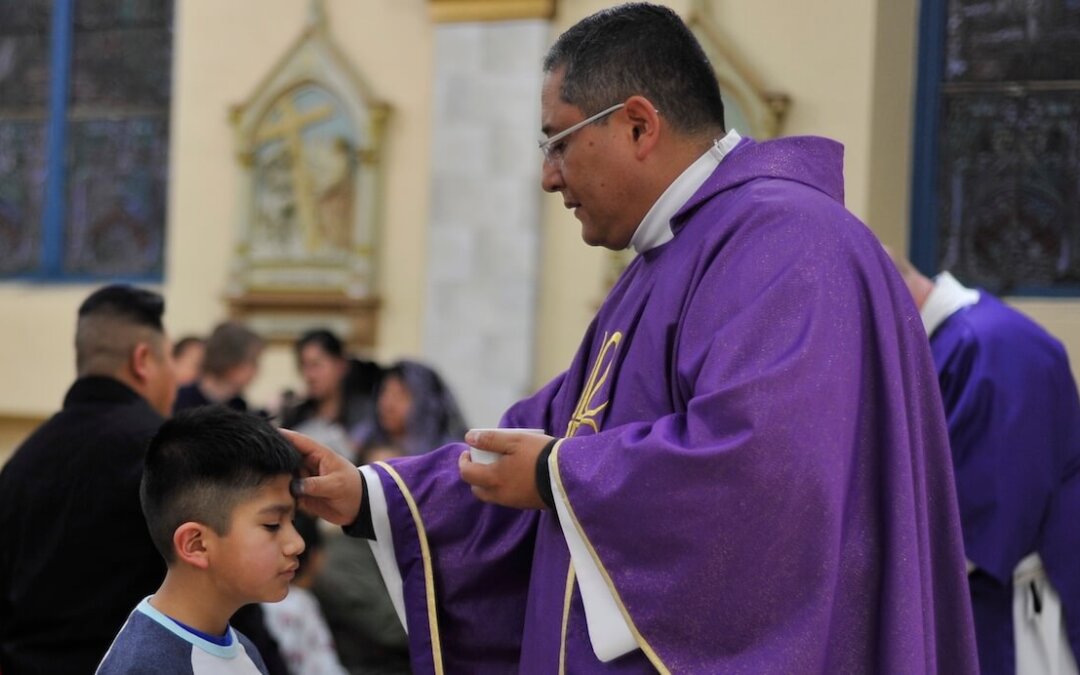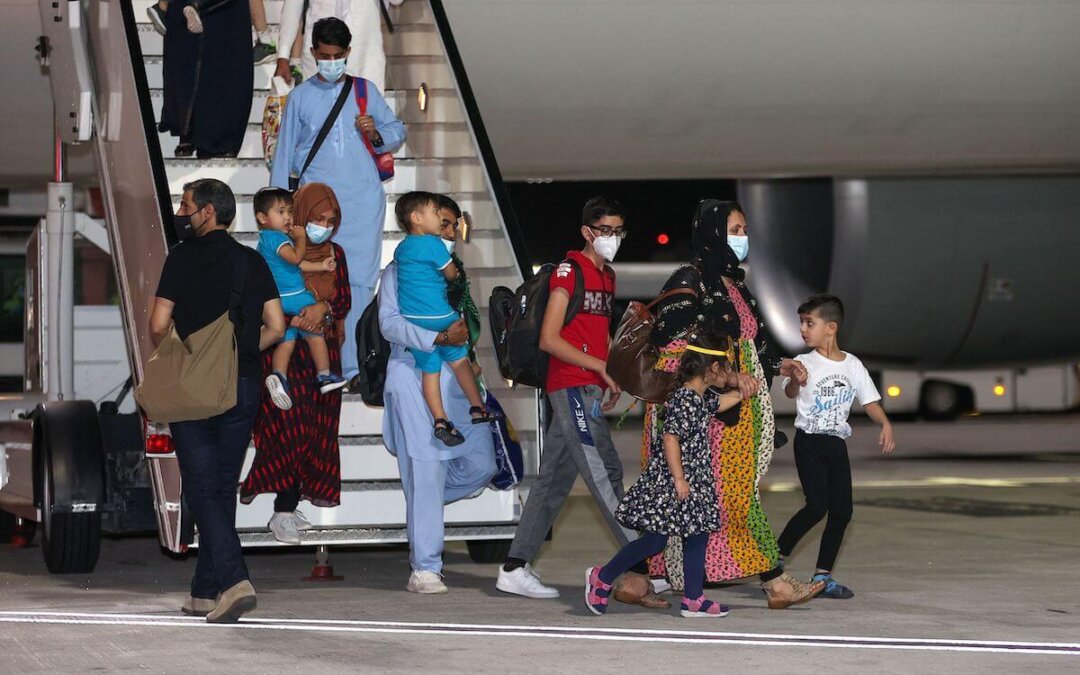
Photo: the Tyson plant in Columbus Junction
According to new state testing data, 221 employees have tested positive for COVID-19 at Tyson’s Columbus Junction location, making it one of the state’s largest known coronavirus outbreaks. About 26 percent of employees tested were found positive for the virus. After closing down for two weeks, the Columbus Junction plant reopened for limited operations on April 21.
Starting Line spoke with the daughter of a Tyson worker about her mother’s experience being one of the 221 who tested positive and has since returned to work. Her mother is one of many workers of a Latino background at the plant, which also employs a large number of refugees from Burma.
She spoke on the condition of anonymity.
For over twenty years, her mother picked up her friend for work, clocked in, worked in the plant’s cold section, ate lunch with the same people, dropped her friend back off and went home to her family. All in a day’s work.
But in late March, that routine changed.
[inline-ad id=”3″]
As rumors in the plant started to swirl about who had been infected with coronavirus, employees became increasingly concerned and absent.
“There were really no guidelines,” the employee’s daughter said. She adds that Tyson was not providing face masks at that time and that social distancing was not being implemented due to the close-nature of production line work.
She says that toward the end of the first week in April, her mother brought her concerns to her immediate supervisor but that they were brushed aside. She was told that if she missed work, she was going to get marked absent and eventually fired.
[inline-ad id=”0″]
But come that Monday, she would not have to go to work, nor would any of her approximately 1,400 coworkers.
The meat processor suspended its Columbus Junction operations on April 7 after they confirmed more than two dozen positive cases.
That was only the start.
The Iowa Department of Public Health sent 200 tests to Columbus Junction to be administered during the plant’s closure, then 900 more.
The family learned of the plant’s closure like everybody else. “The only reason we would find out is because we would see it on the news,” the daughter said. This left the family with questions about whether the mother would get paid by the company or if she would need to file for unemployment.
The family said that Tyson would follow up only after news broke.
[inline-ad id=”1″]
It was also at this time that our source’s mother started to experience symptoms including shortness of breath, headaches, and loss of taste. She also found out that a friend she ate lunch with every day tested positive. She was tested later that week.
“The only reason my mom went to get tested was because her friend, that she was eating lunch with, got the virus.” She also says that the contact tracing fell on the person who tested positive, not the company.
On April 13, our source’s mother got the call. She too was positive for COVID-19.
“My family got really scared because we have immunocompromised family members,” the worker’s daughter added.
The next week was difficult for the family. The family home is not big, making it hard to truly quarantine from one another.
[inline-ad id=”2″]
The daughter says her mother drank a lot of water, tea and homemade Mexican indigenous remedies. She got better quickly, and as she would soon find out, she needed to.
In total, the plant remained closed for two weeks, resuming limited operations on April 21.
That is also the same day our source says her mother was called back to work, only eight days after she was confirmed positive for the virus.
As she walked back into the plant as she had done every day for over two decades, she noticed some changes. She was equipped with a face mask and shield and noticed plastic dividers on the production line and in the lunchroom.
But the work was the same. “It’s the same line speed,” the daughter said. In fact, the daughter says her mom is working longer hours, nine a day including Saturdays.
[inline-ad id=”4″]
And while Tyson says it will provide its workers up to $1,000 in bonus pay, the worker says that missing even one day will make them ineligible for the bonus.
While her mother has fully recovered from the virus, her daughter says this pandemic has only highlighted systemic inequalities.
Iowa’s COVID-19 outbreak has disproportionately affected the state’s Hispanic and Latino populations.
At least 22 percent of Iowa’s total confirmed cases have been within the state’s Hispanic or Latino community, despite only making up about 6 percent of the population.
In Columbus Junction, nearly half of all residents are Hispanic or Latino. Louisa County, where the town of 1,800 is located, does not have a hospital. Two workers from the plant passed away in April.
by Michael Aragon
Posted 5/7/20
Iowa Starting Line is an independently-owned progressive news outlet devoted to providing unique, insightful coverage on Iowa news and politics. We need reader support to continue operating — please donate here. Follow us on Twitter and Facebook for more coverage.
Politics

6 terrifying things that could happen if the Comstock Act is used to target abortion
Does 1873 sound like a really, really long time ago? Well, that’s because it is—but if Republicans and far-right anti-abortion activists have their...

Iowa parents explain how ‘fetal personhood’ would harm IVF
Lyndi Buckingham-Schutt and her husband Andy Schutt, both Des Moines residents, always knew they wanted to have children. When Lyndi was 30, they...
Local News

No more Kum & Go? New owner Maverik of Utah retiring famous brand
Will Kum & Go have come and gone by next year? One new report claims that's the plan by the store's new owners. The Iowa-based convenience store...

Here’s a recap of the biggest headlines Iowa celebs made In 2023
For these famous Iowans, 2023 was a year of controversy, career highlights, and full-circle moments. Here’s how 2023 went for the following Iowans:...




